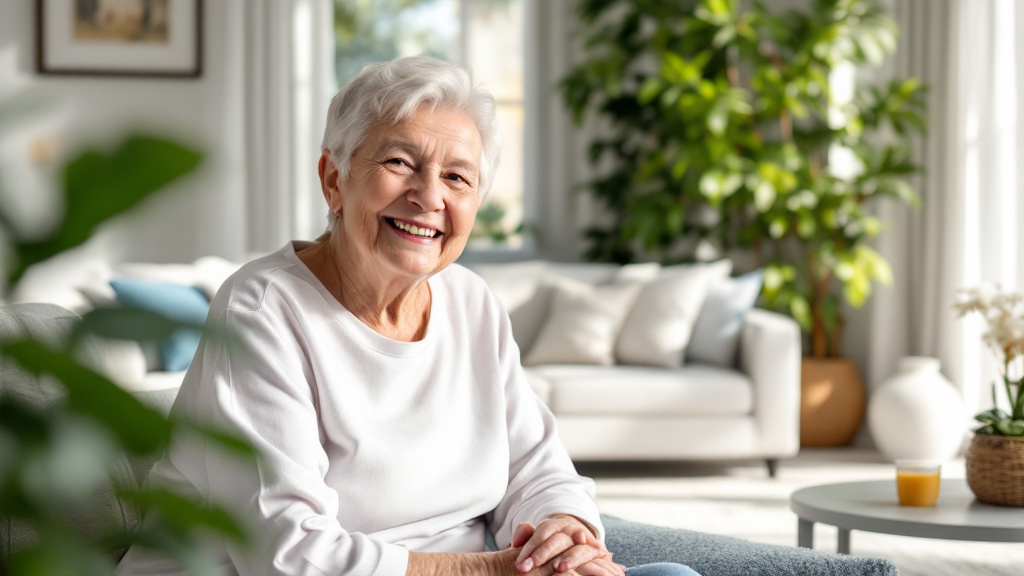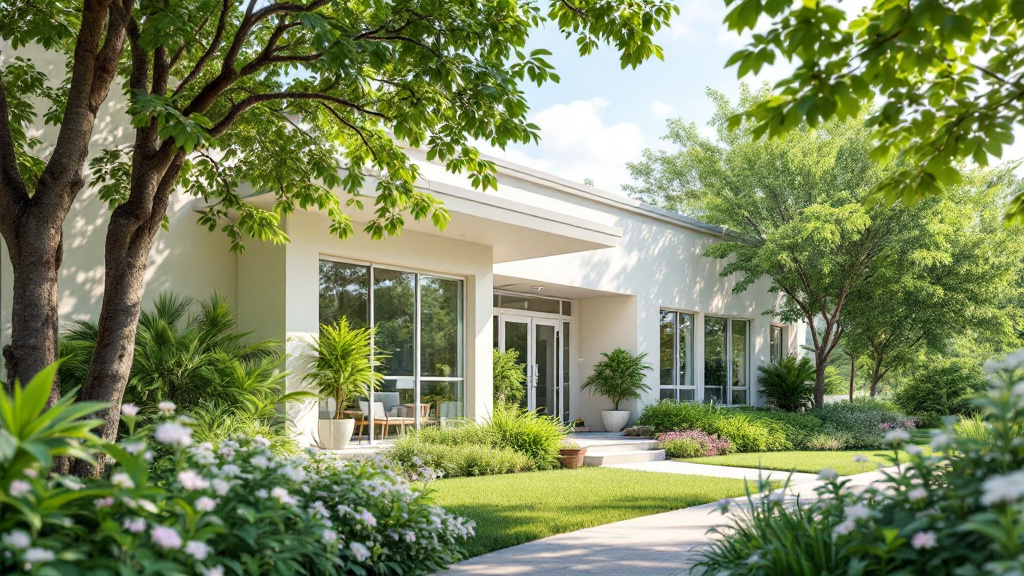The Role of Aromatherapy in Senior Living Facilities
April 25, 2025
Harnessing the Power of Aromatherapy for Seniors

Exploring Therapeutic Scent Strategies
Aromatherapy is increasingly being recognized for its holistic benefits, particularly when integrated into senior living facilities. Using scents as a non-pharmacological approach, this practice is instrumental in enhancing mental, physical, and emotional health. By fostering relaxation and improving mood, it offers a multi-dimensional strategy for elderly care, especially for those dealing with dementia or Alzheimer's disease. This article delves into various aspects of aromatherapy, highlighting its significance and widespread applications in senior wellness.
The Therapeutic Benefits of Aromatherapy for Seniors

Is aromatherapy beneficial for seniors?
Aromatherapy can be highly beneficial for seniors as it involves inhaling essential oils that promote emotional and physical wellness. The soothing aromas of essential oils can evoke positive memories and emotions, making them a powerful tool for enhancing the quality of life among seniors.
Essential oils like lavender, bergamot, and lemon have been shown to improve mood, relieve anxiety, and enhance sleep quality. Studies indicate that regular use of aromatherapy may improve cognitive functions in older adults and can help reduce chronic pain by triggering the release of feel-good hormones. For example, lavender is recognized for enhancing deep sleep duration, while lemon and peppermint can boost alertness and memory.
Moreover, aromatherapy serves as an effective complementary treatment for various issues commonly faced by seniors. By incorporating this holistic approach, caregivers can address emotional distress and promote a more profound sense of well-being in their residents.
Psychological and physical benefits of aromatherapy
Aromatherapy offers numerous psychological and physical benefits, particularly for seniors experiencing anxiety, depression, and chronic pain. The aromatic molecules in essential oils can activate the limbic system in the brain, regulating emotions and enhancing mood.
Furthermore, regular engagement with aromatherapy has been linked to improved sleep quality, reduced anxiety, and even assistance in pain management—making it a favorable alternative to medication, which may come with side effects.
Impact on mood and stress levels
Scents play a critical role in emotional regulation. Aromatherapy has been proven to help calm the nervous system and lower blood pressure, providing comfort during uncertain times. Scents such as lavender, rosemary, and bergamot can uplift mood and alleviate stress, essential for seniors, especially those who may feel isolated or lonely.
Specific oils used and their properties
There are several essential oils frequently used in aromatherapy for seniors, each offering specific therapeutic benefits:
| Essential Oil | Benefits | Application Method |
|---|---|---|
| Lavender | Promotes relaxation and improves sleep quality | Inhalation, bath, massage |
| Lemon | Eases anxiety and aids cognitive function | Inhalation, topical, diffusal |
| Peppermint | Enhances alertness, cognition, and relieves nausea | Inhalation, topical |
| Bergamot | Reduces agitation and boosts mood | Inhalation, bath, massage |
| Rosemary | Supports memory recall and cognitive function | Inhalation, topical |
By incorporating these essential oils into daily routines, seniors can experience more relaxed and engaging environments that support their overall health.
Aromatherapy's Role in Enhancing Sleep for Elderly Patients

Benefits of Lavender Essential Oil
Lavender essential oil is renowned for its calming properties, making it one of the most popular choices in aromatherapy for promoting sleep. Its aroma not only helps to relax the mind but can also lower blood pressure and heart rate, creating an ideal physiological environment for sleep.
Sleep Quality Improvements
Research indicates that the use of lavender essential oil can significantly enhance sleep quality for elderly patients, including those in hospital settings. A notable study showed that elderly hospitalized patients exposed to lavender aromatherapy experienced considerable reductions in both perceived stress and sleep disturbances. The results displayed marked improvements in both subjectively reported sleep quality and objective measures, showing that patients could benefit from this non-invasive intervention.
Applications in Healthcare Settings
Aromatherapy has practical applications in various healthcare settings, particularly in hospitals and long-term care facilities. Evidence from studies supports its use as a beneficial nursing intervention to bolster sleep quality among elderly populations. Moreover, the integration of calming scents like lavender into patient care routines has shown promising results, reinforcing the importance of holistic care approaches in improving overall well-being in older adults.
Incorporating aromatherapy can provide seniors with a soothing environment, helping them manage common issues such as insomnia and anxiety, ultimately leading to a healthier cardiovascular and psychological state.
A Non-Pharmacological Approach to Dementia Care

Effectiveness in Managing Symptoms of Dementia
Aromatherapy has emerged as an effective non-pharmacological strategy for managing symptoms associated with dementia. Studies indicate that certain essential oils can alleviate agitation, restlessness, and other behavioral and psychological symptoms. For instance, lavender and rosemary oils can enhance cognitive function and promote relaxation, potentially easing anxiety and improving mood in seniors.
Examples of Essential Oils Used
Several essential oils are particularly noted for their benefits in dementia care:
- Lavender: Known for its calming properties, it can promote better sleep and reduce anxiety.
- Peppermint: This oil can aid cognitive function and help with nausea, often improving appetite.
- Bergamot: Useful in reducing stress and agitation, making it beneficial for those living with dementia.
- Lemon Balm: This oil aids relaxation and can help ease anxiety among Alzheimer’s patients.
Impact on Quality of Life and Caregiver Stress
Incorporating aromatherapy into dementia care can significantly enhance quality of life for residents. It not only helps in alleviating distressing symptoms but also reduces caregiver stress. By providing a calming environment, aromatherapy can foster emotional well-being, thus improving overall satisfaction for both seniors and their caregivers. Reports suggest that caregivers have noticed positive shifts in mood and behavior during aromatherapy sessions, leading to decreased feelings of frustration and burnout.
Practical Integration of Aromatherapy in Senior Living Environments

Tools and methods for applying aromatherapy
In senior living environments, aromatherapy can be implemented using various simple tools and methods. Candles and diffusers are popular choices, allowing residents to experience essential oils in their living spaces effortlessly.
Moreover, aromatherapy can also be incorporated through skin application or added to bath water. For those with dementia, hand massages using essential oils like lavender or geranium can promote relaxation and improve mood, making it a personalized approach to care.
Additionally, incorporating spritzers or bath salts infused with essential oils in daily routines can enhance the sensory experience, providing comfort and improving overall well-being.
Creating a calming atmosphere
Creating a soothing environment is essential for managing stress and enhancing emotional health among seniors. Scents such as lavender and bergamot play a significant role in this, as they are known to reduce anxiety and promote calmness.
Using uplifting yet soothing citrus scents helps stimulate the senses and can create a positive ambiance in communal areas. This approach not only supports individual wellness but also encourages social interactions among residents, which is crucial in alleviating feelings of isolation and loneliness.
Potential challenges and solutions
While aromatherapy has numerous benefits, challenges can arise, particularly for seniors with sensitivities or allergies to certain scents. It is vital to provide individual options, allowing residents to choose their preferred scents while monitoring for adverse reactions.
Furthermore, caregiver training on safe application techniques is essential. Utilizing carrier oils for direct skin applications can minimize risks of irritation. Emphasizing personalized approaches ensures that aromatherapy remains a positive and beneficial experience for everyone involved.
Essential Oils in Managing Behavioral Symptoms and Appetite

Specific oils such as peppermint and lavender
Aromatherapy utilizes various essential oils to address specific health challenges among seniors, notably in managing behavioral symptoms and enhancing appetite. Notable oils include peppermint and lavender.
Peppermint essential oil is celebrated not only for its invigorating scent but also for its cognitive boosting properties. It can work effectively to reduce anxiety, which may contribute to improved appetite and overall wellness in elderly patients. Lavender, on the other hand, is renowned for its calming effects, helping to reduce agitation and promote relaxation, particularly beneficial for those with dementia.
Role in reducing agitation and stimulating appetite
Research indicates that the therapeutic properties of these essential oils can significantly impact emotional and psychological states. For instance, lavender's calming effects may alleviate anxiety and emotional distress—a common experience among seniors facing cognitive decline. Meanwhile, peppermint helps in stimulating appetite through its refreshing scent and potential to alleviate feelings of nausea often associated with medication effects.
Moreover, scents from essential oils like spearmint and citrus can invoke pleasant memories around food, making mealtime more appealing to seniors, thereby enhancing their nutritional intake.
Research on appetite stimulation
Studies have shown that essential oils, particularly citrus and peppermint, provide sensory stimulation that can lead to an improved appetite in older adults. By invoking memories tied to certain foods or experiences, these aromas can evoke positive emotional responses, encouraging healthier eating habits.
In conclusion, the integration of aromatherapy using oils such as peppermint and lavender presents a promising approach to managing behavioral symptoms and enhancing appetite among seniors.
The Role and Path of an Aromatherapist in Senior Care
What is the role of an aromatherapist?
An aromatherapist plays a vital role in enhancing emotional well-being among seniors by utilizing essential oils to reduce stress and elevate mood. By tailoring aromatic treatments to individual needs, aromatherapists help create soothing environments that foster relaxation and improve overall quality of life.
What training and skills are required?
To become an aromatherapist, individuals can take college courses, participate in apprenticeships, or engage with professional organizations. While there are no mandatory educational requirements, key skills for this profession include:
- Excellent communication: Essential for understanding clients’ needs.
- Active listening: Helps in tailoring approaches specifically to the individual.
- Customer service abilities: Essential for ensuring a positive therapeutic experience.
What are the professional settings and practical tasks?
Aromatherapists typically work in various settings, including health spas, therapy clinics, and clients' homes. Their responsibilities may involve:
- Assessing client needs and health conditions.
- Selecting appropriate essential oils for treatments.
- Providing detailed instructions for safe home use of oils.
As aromatherapy gains recognition for its benefits in senior care, professionals in this field may evolve into self-employed roles, potentially integrating complementary therapies into their practices.
Aromatherapy: A Holistic Path Forward
Incorporating aromatherapy into senior living facilities represents a promising approach to enhancing the well-being of residents. By addressing both emotional and physical health, this non-invasive therapy can significantly improve life quality, especially for those with cognitive impairments or who are experiencing isolation. As awareness and evidence of its effectiveness grow, aromatherapy's integration into routine care for seniors could offer a refreshing pathway to holistic health improvement.
References
- Integrating Aromatherapy Into Senior Living
- How Aromatherapy Helps Seniors In Dementia Care Assisted Living
- [PDF] AROMATHERAPY IN A CARE HOME SETTING
- Benefits of Aromatherapy - Maplewood Senior Living
- Skilled Nursing Facility Uses Aromatherapy to Improve Person ...
- Effectiveness and Safety of Aromatherapy in Managing Behavioral ...
- Aromatherapy for Dementia: How You Can Benefit Your Loved One
Similar articles


How to Extend the Benefits of Short-Term Rehabilitation After Discharge

The Role of Recreational Therapy in Nursing Homes

Senior Discounts And Perks

How Respite Care Improves the Quality of Life for Seniors and Caregivers

The Impact of Assisted Living vs. Nursing Home Care
Contact us today and experience ”The Name in Healthcare”
Where compassion, well-being, and a welcoming community converge to redefine your healthcare journey. Welcome to Rosewood, where your family becomes our family.














